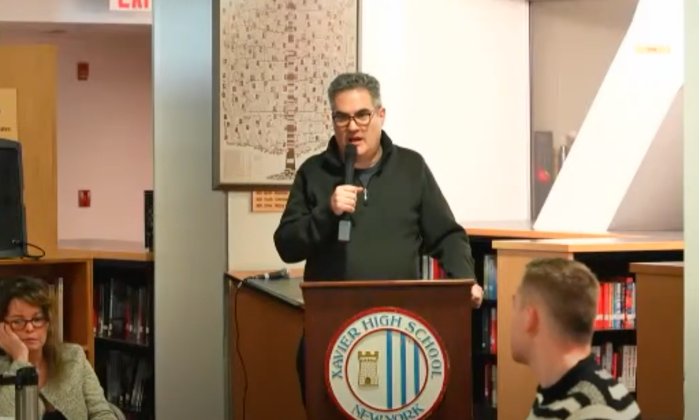But Clinton says fixing problem is
The big story at the 14th International AIDS Conference held in Barcelona July 7 – 12 was not a surprise: less than two percent of the 40 million HIV-positive people in the world have access to the drugs that keep people from dying of AIDS.
“My advice,” former U.S. President Bill Clinton told the 15,000 delegates, “is push every country you can to make their deals with the drug companies. If the deals are unsatisfactory, go to Brazil or India––the U.N. is certifying those drugs. Then come to the rest of us and say, ''OK, this is what we need: Here''s what we need for medicine and here''s what we need for prevention.''” (Brazil and India circumvent drug-company patents and produce and export generic AIDS drugs at a fraction of the cost of the brand-name products.)
“Barring some nuclear war, more people are going to die from AIDS in the next three years than from anything else,” Clinton said, in one of several appearances at the confab. “Wherever you''re from, what''s your government''s fair share [to spend], and are they paying it? The second thing is, is there a plan?… You can criticize the drug companies––some are much better than others… Most countries still haven''t cut their deals with the drug companies. You need to make sure there is a plan. And then, once you know what the price is, you figure out what the government can afford to pay there, and what the rest of us have to kick in, and then who''s got to get the drugs out and teach people how to use them.”
Clinton voiced optimism that careful planning would be rewarded by the necessary resources.
“The money will come,” he said. “The world has awakened to this, if there is a plan… That''s what my advice is… What''s [your] country supposed to pay, and badger them to pay it. And then badger them to have a plan. And then badger them to implement it. It''s not very complicated.”
Clinton is advisory board co-chair, along with former South African President Nelson Mandela, of the International AIDS Trust.
Other headlines from the conference include:
Many young U.S. gay men are barebacking and most who have become HIV-positive as a result do not know they are infected.
A new class of drug will hit the market within a year. Fusion inhibitors, also called entry inhibitors, block HIV earlier in the replication process than any of the 16 drugs now available, preventing an immune-system cell from becoming infected in the first place.
Therapeutic vaccines are on the radar screen as a new kind of treatment for people who are already infected.
And the health secretaries of the United States and Spain were prevented from being heard at the conference in separate run-ins with jeering, whistle-blowing protesters –– scenes reminiscent of the 1990 AIDS conference in San Francisco.
Twenty million people around the world have died of AIDS to date, says UNAIDS, the Joint United Nations Programme on HIV/AIDS. By 2020, 68 million more may be dead. Even with negotiated price reductions in some Third World nations, the anti-retroviral drugs––each one patented and produced by only one company––still cost way too much.
“We are only at the beginning of the AIDS epidemic,” said UNAIDS director Peter Piot. “Collectively, we have grossly, grossly underestimated how bad this was going to be… It is by far the biggest epidemic that humanity has known in absolute terms.”
PROTESTS
Hundreds of protesters staged a colorful march outside the conference demanding universal access to cheap, generic AIDS drugs, including wealthy nations where the yearly price tag for an antiviral cocktail is $12,000 to $15,000, a serious strain on the health-care budgets of even well-off countries.
On day three of the conference, about 100 very noisy protesters (with support from much of the audience) prevented U.S. Health and Human Services Secretary Tommy Thompson from being heard when he delivered his address. They chanted, blew whistles and shouted. Thompson persevered to the end, despite the deafening din.
The protesters accused George Bush''s administration of failing to give its fair share to the new Global Fund to Fight AIDS, Tuberculosis and Malaria; shortchanging the U.S. AIDS Drug Assistance Program; blocking needle-exchange programs; and “attacking science-based prevention programs that talk frankly about sex and supporting abstinence-only prevention programs.” “The truth is, we know what he was going to say, and we''re tired of his lies,” said protester Asia Russell, who was credentialed to the conference with the organization Health GAP.
U.N. officials and others working on the Global Fund agreed with the protesters on all points. Columbia University economist Jeffrey Sachs, an adviser to U.N. Secretary-General Kofi Annan, said the Bush administration suffers from “utter confusion” on AIDS issues, lacking even a plan.
The U.S. has pledged $500 million to the Global Fund, but fund officials say the U.S.’s fair share would be $2.5 billion of the total $10 billion yearly goal.
Thompson said the U.S. contribution is a quarter of all the money the fund has raised so far. Fund officials replied that when the U.S. didn''t ante up its fair share, other nations followed suit and didn’t pay what they should either.
Protesters pointed out that as a percentage of their gross domestic products, Sweden has contributed seven times more than the U.S. and Rwanda has contributed 10 times more.
On July 12, just hours after the conference ended, the U.S. Senate passed a measure to double U.S. contributions to the Global Fund; the bill now must be reconciled with one that has passed the House of Representatives.
Spanish Minister of Health and Consumer Affairs Celia Villalobos got a reception similar to Thompson''s when she tried to address the opening plenary session. No one heard her because several hundred Spanish delegates screamed and blew whistles throughout her speech.
The protesters were upset that up to 100 delegates were denied visas to attend the conference by Spanish embassies and consulates in several nations, including South Africa, Sri Lanka, and Yugoslavia. They also said Spain has budgeted only for 21 percent of its promised contribution to the Global Fund.
HIV TRANSMISSION
The study on infection rates in young U.S. gays was conducted by the Centers for Disease Control at gay bars and other meeting places in several cities. They interviewed 5,719 men under age 30 then drew their blood. Five hundred seventy-three of the men tested positive and 440 of them didn''t know they were positive. Most, in fact, thought they were negative and at low-risk for HIV infection. Ninety-one percent of the blacks who were positive didn''t know it, 70 percent of the Latinos, and 60 percent of the whites.
A spokesperson for the D.C.-based national lobby/policy group AIDS Action, whose chair is Ronald Johnson, associate executive director of Gay Men’s Health Crisis, said a big part of the problem is barebacking––gay men deliberately not using condoms during casual sexual encounters. “There is the whole notion that AIDS is over in the United States, that it''s not a problem any more,” Scott Brawley, director of public policy, said in an interview. “Prevention messages are not working. We do have gay men barebacking… We have a whole generation of people under the age of 30 that don''t remember the AIDS epidemic, that think it''s nothing more than, ‘Hell, you take a couple of pills and you''ll be fine.’”
Brawley had no suggestions on how to slow the barebacking trend.
“My honest response, as a gay man, is that things are going to have to get worse again before they''ll ever get better,” he said. “Resistant HIV, an explosion of HIV, something that may go wrong with the medications.”
TREATMENT
The new drug––an entry/fusion inhibitor made by Roche and the U.S. biotech firm Trimeris––is called T-20 or enfuvirtide. It has succeeded in reducing HIV viral load to undetectable levels in many people who had become resistant to all currently available drugs, which are protease inhibitors or reverse-transcriptase inhibitors. T-20 will be shockingly expensive ($10,000-$12,000 per patient per year, according to reports) and must be injected rather than swallowed.
Still, veteran AIDS researcher Robert Gallo, who co-discovered HIV, predicted that fusion/entry inhibitors like T-20 will soon replace protease inhibitors because the latter are “toxic.”
“The inhibitors of viral entry will be the most important new advances,” Gallo said. “The protease inhibitors will go down and maybe go away. Important as they are, they are toxic… My guess would be in two or three years, the protease inhibitors will go away. They will be taken over by viral entry inhibitors and by more intelligent use of reverse-transcriptase inhibitors.”
Human trials will begin this year in the U.S. and Italy on another possible new treatment––therapeutic vaccines.
The vaccines, which are rubbed into the skin, may allow HIV-positive people to periodically go off their meds, or to take fewer drugs, researchers said. The vaccines work in monkeys, stimulating the white blood cells that destroy HIV-infected cells.
At the conference’s closing session, Bill Clinton repeated his recipe for ending the AIDS epidemic and the former president’s co-chair, Nelson Mandela, presented a lengthy analysis of the crisis, agreeing with Clinton almost point-by-point.


































